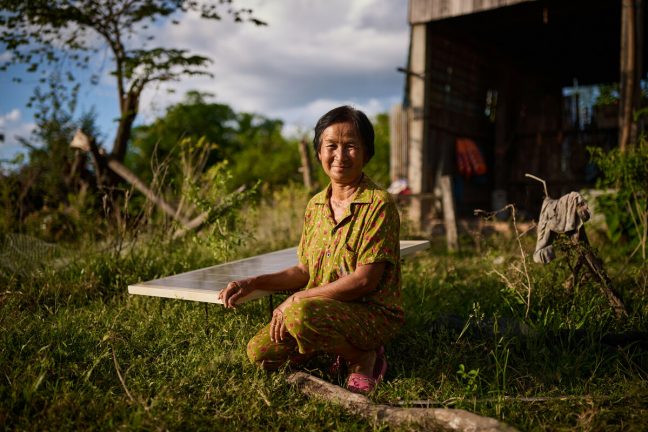Australia is making great strides in moving to renewable energy at home, with almost half of our electricity now coming from solar, wind and hydro. But do our international policies, investments and practices support this transition in low-income countries? Are we ensuring this transition is fair and just for local and Indigenous communities, protecting their human rights and land rights, and providing access to affordable and reliable clean energy for all?
Oxfam’s new Powering Up Potential report analyses almost 70 policy documents relating to Australia’s international commitments across trade, export finance, sovereign wealth funds, development assistance and multilateral negotiations against principles of a just energy transition.
It finds Australia’s support of a just energy transition internationally is inconsistent, and in many cases weak or absent. This is of great concern, but it doesn’t have to be this way.
The choices Australia makes now will shape the global energy system for decades.
In the shift to renewable energy globally, Australia can provide far more support to low-income countries to avoid the pollution pathway and become energy secure nations that thrive on clean, renewable energy sources.
Australia can support low-income communities to power up with community-owned, affordable and reliable renewable energy projects that ensure rights are upheld, voices heard, and people’s futures are made more secure.
Oxfam’s key recommendations for the Australian Government:
- Significantly increasing grant-based climate finance to low-income countries to support access to renewable energy for all, including direct support for community-owned projects.
- Creating a new DFAT climate change action strategy with just energy transition principles embedded in it and a clear commitment to end all coal, oil and gas project finance.
- Establishing an interdepartmental taskforce within government to align trade, finance, climate and development policies with a just energy transition.
Read the Powering Up Potential report here.
What is the Just Energy Transition?
Climate change is happening right now. The burning of coal, oil and gas is heating the planet and causing more frequent or intense floods, heatwaves, bushfires, droughts and cyclones.
The impacts of climate change are felt by everyone, but not equally. Those in low-income countries and communities, who have few means to prepare for or recover from climate disasters, are feeling the brunt of the impacts.
To prevent this getting worse, the world needs to rapidly transition away from coal, oil and gas for energy and to renewable energy made from the sun, wind and water. Wealthy industrialised countries like Australia who have fuelled this crisis must step up to support low-income countries and communities with the transition.
The transition to renewable energy must be fair and just. If not, it could deepen poverty and inequality by displacing local and Indigenous communities from their land, excluding local voices from decision making that impacts their lives, and failing to ensure low-income, marginalised and remote communities have access to clean energy.
If the transition is undertaken with justice and respect for communities’ rights at its heart, it offers an unprecedented opportunity to simultaneously avert the worst of the climate crisis and to reduce poverty and inequality through access to community-led affordable, clean energy.
How is Oxfam is supporting a Just Energy Transition?
Oxfam advocates for a global just energy transition at the United Nations Climate Talks, at regional levels in South-East Asia and the Pacific, and to national governments in countries we work in. We also work with local partners on a range of programs that support civil society groups in low-income countries to have a voice on climate policy.
Oxfam’s program work supports local partner organisations to set up local solar energy systems to provide electricity for lighting, water pumps, desalination plants, aquaponics systems, and more for remote communities.
We have also been working with a range of these communities to provide access to clean energy using waste. In Rarang, Indonesia, Oxfam has partnered with local organisation Gema Alam to install biogas systems in communities without access to modern energy.
Nurlaeli, who is featured in this photo, powers her biogas system with livestock dung and food waste. When livestock waste is fermented and composted down it releases methane gas that can be used for cooking and, when that gas is burnt, it reduces the climate pollution. This allows Nurlaeli to cook without foraging for firewood or buying gas, providing a reliable, affordable, cleaner and healthier source of energy for her household.

